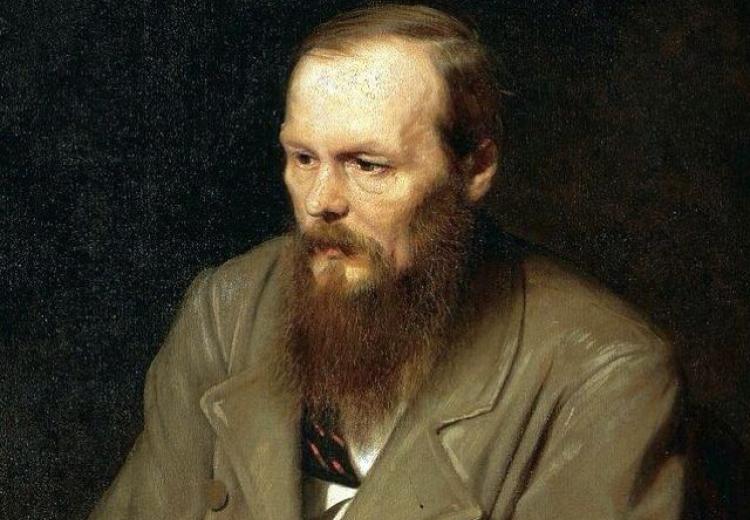Lesson 2: Man and Superman

Portrait of the Writer Fyodor Dostoyevsky.
People generally expect a crime like Raskolnikov's in Dostoyevsky's Crime and Punishment to be motivated by emotions such as anger, greed, revenge, or a desire for some kind of thrill. Intellectual crimes, those motivated by an idea, seem less common but are no less dangerous. What leads an educated young intellectual like Raskolnikov, someone with no criminal history, to commit murder with an axe? Discussion of this issue reveals that divisions in the novel are not limited to the psychologies of individual characters.
Crime and Punishment expresses the theoretical distinction between ordinary and extraordinary individuals and considers the extent to which "extraordinary men" are free of the limitations imposed on others. Readers learn that Raskolnikov has written a published article on this subject articulating his belief that the great movers and shakers of history committed many crimes that were necessary and inevitable to achieve their goals; these men were or seemed to be exempt from guilt.
Students examine this theory as it is revealed in several scenes within the novel and tackle the larger questions it brings up: Are humans really divided into two distinct categories, the ordinary and the extraordinary? Is this division a figment created by an overactive intellect? What did Dostoevsky think? Students then go on to uncover yet another split in the world of the novel, one between intellect and emotion/instinct.
This lesson is one part of a three-lesson unit about Crime and Punishment. The three lessons may be taught in sequence or each lesson may stand on its own. Teachers may link to the full unit with Guiding Questions, College and Career Readiness standards and Background. Lesson 2 aligns with CCSS.ELA-Literacy.RL.11-12.2.
Learning Objectives
Distinguish between man and superman as the theory relates to Raskolnikov's actions
Analyze the split between reason and emotion that is the basis of Raskolnikov's subsequent reactions to his crime
